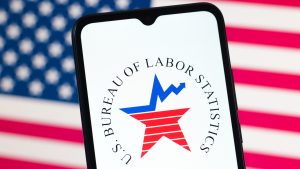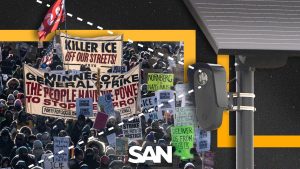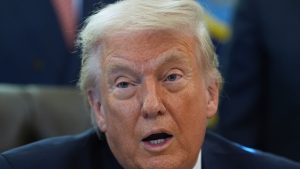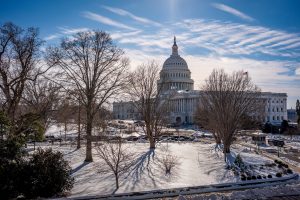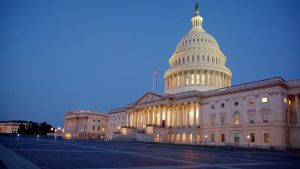Trump says tariffs on China are an emergency, but what makes it one?
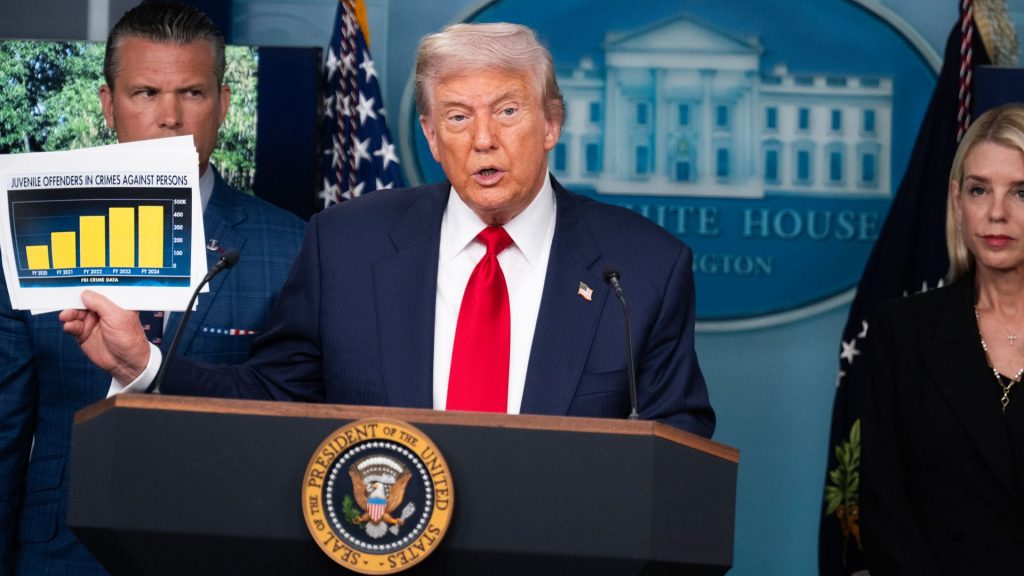
In the first seven months of his administration, President Donald Trump has used the word “emergency” to justify several actions, including tariffs and the recent federal takeover of Washington, D.C. But what actually constitutes an emergency?
National emergencies
The National Emergencies Act was signed into law in 1976 by former President Gerald Ford. That law allows a president to declare a national emergency, which unlocks certain statutory powers.
Those powers range from reprogramming federal funds to calling up military reserves to suspending or waiving federal regulations.
But that begs the question, what is an emergency?
“Basically, it’s anything the president says,” Dan Farber, law professor at UC Berkeley, told Straight Arrow News. “Not because Congress intended that, but because no court has been willing to review whether something really was an emergency once the president said it was.”
Farber said the courts are just not confident about where they can exactly draw a line between an emergency and a non-emergency.
“Trump is really pushing that in many of these emergency declarations,” Farber said. “It’s possible that it’ll get to one that’s so extreme that even a court, despite not wanting to second-guess these things, is just going to have to say, ‘wait a minute.’”
The legality of using the National Emergencies Act can be tough to interpret, especially in cases like the current one in D.C.
“I’m just not sure where the interpretive lines are in so far as what’s constitutional, what’s legal, and then when you throw in the district, it becomes a whole ‘nother matter, because technically, Congress does have full control over it,” Richard Conley, political science professor at the University of Florida, told Straight Arrow News. “And you know, the president can preempt the law enforcement there, if he so desires, at least for a short period of time. So, I don’t know. All I can say is I’m glad I’m not an attorney in the Department of Justice right now.”
Possible pushback
Farber said this is a case where Trump is testing the limits of what courts are willing to do.
“There are issues that they just don’t think are suitable for them,” Farber said. “And you can even see with the emergency power, you could just imagine, in a genuine emergency, some pig-headed federal judge decided ‘no, it’s not.’ And then stopping everything in its tracks at a really crucial moment.”
Several lower courts have started some pushback on the president, specifically in his use of the Alien Enemies Act to target alleged Venezuelan gang members.
Earlier this year, an appeals court judge claimed Nazis were given more rights to contest their removal from the U.S. than Venezuelan migrants today.
“It does show that some judges are starting to maybe be willing to dig in their feet,” Farber said. “But it’s going to have to go really far before a judge would say, ‘no, this is beyond ridiculous.’”
Another form of pushback could come from Congress. If congressional leaders wanted to, they could pass legislation overturning emergency declarations or the National Emergency Act.
Without any kind of supermajority coalition, the president could veto that. Republicans hold a slim majority in both the House of Representatives and Senate, though some have defected from the party’s objectives on occasion.
“He has complete control of Congress right now, so neither the courts nor Congress are really at all primed to step in,” Farber said. “And that really leaves him a huge playground where he can just sort of make things up and call them emergencies.”
Presidential restraint
“Any President has the authority to declare these sorts of things, whether or not you and I or anybody else agrees with the idea,” Conley said.
Since the country’s founding, presidents have tested their powers. They include Abraham Lincoln’s suspension of Habeas Corpus to Franklin D. Roosevelt’s imposition of an arms embargo during the Chaco War between Bolivia and Paraguay.
The latter led to a landmark Supreme Court opinion in a case called the United States v. Curtiss-Wright Export Corporation.
“[It] basically said that the president has plenary powers in terms of international economic negotiations and things like this,” Conley said.
Despite the suspension of their implementation, the nature of the system means that Trump’s tariffs are still considered an emergency.
Some of the recent national emergency declarations also aren’t over one specific incident, such as when former President Barack Obama issued an emergency order for cyberattacks.
“That wasn’t something that all of a sudden, people discovered there was a cybersecurity problem, and they had to deal with it right away,” Farber said. “This was a problem that had been recognized for a while and they were working on, and the emergency declaration was intended to give them more power, so that was stretching things a little bit. But I think Trump, as in many areas, has just shown a willingness to go to the absolute limit in terms of use of powers where previous presidents had had some degree of self-restraint.”

